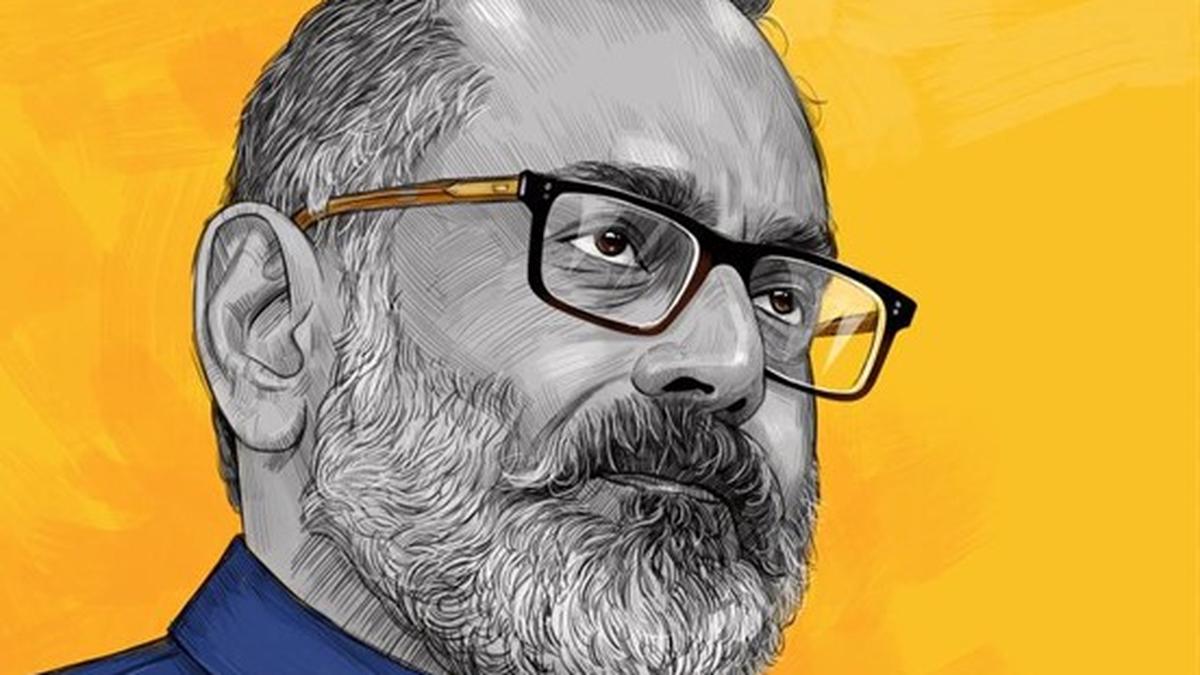
Rajeev Chandrasekhar: From business to politics Premium
The Hindu
The Hindu rprofiles on Rajeev Chandrasekhar the new BJP president of Kerala
On June 9, 2024, soon after his defeat in the general elections from the Thiruvananthapuram Lok Sabha constituency, a post appeared on entrepreneur-turned-politician Rajeev Chandrasekhar’s page on X, announcing his exit from electoral politics after an 18-year stint of public service. Within a few minutes, the post vanished, replaced by a clarification that Mr. Chandrasekhar meant the end of his 18-year-long stint as an MP and three years as a Minister of State. He claimed his team’s “new young intern” had caused the confusion.
Less than a year later, he is back in the thick of it all, with the central leadership of the Bharatiya Janata Party (BJP) appointing him president of the party’s Kerala unit. The election defeat also probably contributed to his elevation to the post, for he gave a close fight to Congress leader Shashi Tharoor, whose margin of victory tumbled from 99,989 to 16,077 votes.
Mr. Chandrasekhar’s appointment comes at a crucial juncture in the BJP’s political trajectory in Kerala. Until recently, the State remained largely impervious to the Sangh Parivar’s electoral gambits. In 2024, Kerala yielded a Lok Sabha seat to the BJP in Thrissur for the first time in the State’s electoral history, raising questions about whether the win portended the wane of the UDF-LDF revolving door politics. Ahead of the local body polls later this year and the Assembly elections in 2026, the BJP is seeking to build on this success and to broaden its base, especially among the aspirational younger crowd whom Mr. Chandrasekhar had gone all out to woo in his Lok Sabha campaign.
But he is also an unusual choice for the post, as he has limited personal connection with the local populace. For a change, the party has not chosen someone who has worked the way up through grassroots politics; instead, it has selected someone who entered the party’s upper echelons based on his record as a businessman. The party may leverage this image to appeal to the ideologically flexible and apolitical crowd, a constituency successfully cultivated by Mr. Tharoor.
“People in the State have no trust in politics after 70 years of false promises on both fronts. We need to change Kerala from a place with ‘Nokkukooli’ (gawking wages) to one with investments and jobs. There should be an NDA government in the State to bring about this change. This is the task that has been given to me. I will return only after fulfilling this mission,” Mr. Chandrasekhar said soon after taking charge.
Born as the son of an Indian Air Force officer, Rajeev Chandrasekhar spent a good part of his early years in Karnataka. In the late 1980s, after completing master’s in computer engineering in the U.S., he joined Intel for a three-year stint, which would come in handy when he returned to the country and became the executive director of BPL Group, owned by his father-in-law T.P.G. Nambiar. In 1994, he became one of the first tech entrepreneurs in the country to launch BPL mobiles, tapping into the emerging field of mobile telephony.
However, a decade later, Nambiar approached the Company Law Board, accusing Mr. Chandrasekhar of stealthily increasing his stake in the company without making a proportional investment, a charge he denied. For nearly a year, the feud prevented Mr. Chandrasekhar from selling his stake as planned. But, by 2005, he sold his stake and founded Jupiter Capital, an investment and financial services firm that now manages assets across several sectors.

Andhra Pradesh HRD Minister Lokesh lays stone for Reliance Industries Limited’s CBG plant at Divakarapuram in Prakasam district. The 100-tonne capacity state-of-the-art plant spread over 475 acres is being established with an investment of ₹139 crore. RIL is investing a total of ₹65,000 crore to establish 500 CBG plants across the State, which are expected to generate employment opportunities to approximately 2.5 lakh people.

 Run 3 Space | Play Space Running Game
Run 3 Space | Play Space Running Game Traffic Jam 3D | Online Racing Game
Traffic Jam 3D | Online Racing Game Duck Hunt | Play Old Classic Game
Duck Hunt | Play Old Classic Game










